 1 citations,
May 2017 in “Journal of The American Academy of Dermatology”
1 citations,
May 2017 in “Journal of The American Academy of Dermatology” People with alopecia areata often have lower vitamin D levels than healthy people.
 1 citations,
May 2017 in “Journal of The American Academy of Dermatology”
1 citations,
May 2017 in “Journal of The American Academy of Dermatology” A woman's hair grew back after stopping acitretin for psoriasis and getting steroid treatment, and low vitamin D might be linked to alopecia severity.
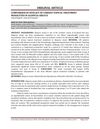 1 citations,
February 2015 in “Journal of evolution of medical and dental sciences”
1 citations,
February 2015 in “Journal of evolution of medical and dental sciences” 0.05% Betamethasone Dipropionate is the most effective topical treatment for alopecia areata.
 April 2024 in “Journal of asthma and allergy”
April 2024 in “Journal of asthma and allergy” Abrocitinib effectively treated severe atopic dermatitis and mild alopecia areata in a 12-year-old boy after dupilumab failed.
 March 2024 in “Dermatology and therapy”
March 2024 in “Dermatology and therapy” AA patients with comorbid conditions face more severe hair loss and need specific treatments.
 February 2024 in “Scientific reports”
February 2024 in “Scientific reports” Four genes are potential markers for hair loss condition alopecia areata, linked to a specific type of cell death.
 January 2024 in “American journal of clinical dermatology”
January 2024 in “American journal of clinical dermatology” Ritlecitinib is safe and well-tolerated for treating alopecia areata in patients aged 12 and older.
 December 2023 in “International Journal of Medical Arts”
December 2023 in “International Journal of Medical Arts” Transplanted hair follicles show significant changes after FUE, needing more research.
 October 2023 in “Benha Journal of Applied Sciences”
October 2023 in “Benha Journal of Applied Sciences” PPAR-γ may be a key target for treating alopecia areata and other skin conditions.
 August 2023 in “International journal of research in dermatology”
August 2023 in “International journal of research in dermatology” Janus kinase inhibitors are effective and generally safe for treating hair loss in adults with alopecia areata.
 June 2023 in “Dermatology and therapy”
June 2023 in “Dermatology and therapy” Doctors in the Middle East need better treatments and more knowledge about new therapies for hair loss condition Alopecia Areata.
 June 2023 in “Buletin de psihiatrie integrativă”
June 2023 in “Buletin de psihiatrie integrativă” Alopecia causes significant emotional distress and psychological issues, requiring combined skin and mental health treatment.
 May 2023 in “Sučasna pedìatrìâ. Ukraïna”
May 2023 in “Sučasna pedìatrìâ. Ukraïna” An 11-year-old child with total hair loss may have a genetic autoimmune disease, and the outlook for hair regrowth is not good.
 January 2023 in “National Journal of Physiology, Pharmacy and Pharmacology”
January 2023 in “National Journal of Physiology, Pharmacy and Pharmacology” Tofacitinib effectively reduced hair loss in alopecia areata patients without adverse effects.
 December 2022 in “Rossijskij žurnal kožnyh i veneričeskih boleznej”
December 2022 in “Rossijskij žurnal kožnyh i veneričeskih boleznej” New treatments for child hair loss due to immune issues are effective but not yet officially approved.
 August 2022 in “Revista de la Universidad Industrial de Santander/Salud UIS”
August 2022 in “Revista de la Universidad Industrial de Santander/Salud UIS” Stress-related hair loss was reversed with a special medication.

Combining epinephrine with a steroid may help regrow hair in severe alopecia areata cases.
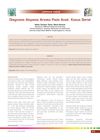 April 2022 in “Cermin Dunia Kedokteran”
April 2022 in “Cermin Dunia Kedokteran” Accurate diagnosis and understanding of alopecia areata in children are crucial for proper treatment.
 October 2021 in “Dermatology Reports”
October 2021 in “Dermatology Reports” Higher IL-17A levels indicate more severe alopecia areata.
 August 2018 in “Journal of The American Academy of Dermatology”
August 2018 in “Journal of The American Academy of Dermatology” Children with alopecia areata should only get thyroid screening if they have Down syndrome, a family history of thyroid disease, atopy, or signs of thyroid problems.
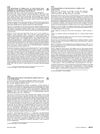 August 2018 in “Journal of The American Academy of Dermatology”
August 2018 in “Journal of The American Academy of Dermatology” The study concluded that a new method can effectively assess scalp sun damage in balding men, which increases with age and sun exposure.
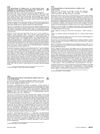 August 2018 in “Journal of The American Academy of Dermatology”
August 2018 in “Journal of The American Academy of Dermatology” Older men's scalp damage increases with age and sun exposure, a baby girl in the Philippines has Schimmelpenning syndrome, and thyroid screening is advised for children with hair loss and certain risk factors.
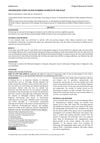 August 2017 in “Journal of evolution of medical and dental sciences”
August 2017 in “Journal of evolution of medical and dental sciences” Trichoscopy is effective for diagnosing different types of non-scarring hair loss.
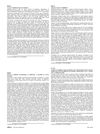 March 2014 in “Journal of the American Academy of Dermatology”
March 2014 in “Journal of the American Academy of Dermatology” Alopecia areata is relatively common in children, has a variable course, and shows different responses to treatment; thyroid testing is recommended for those affected.

Detailed history and physical examination are crucial for diagnosing hair loss.
 April 2023 in “Journal of Cosmetic Dermatology”
April 2023 in “Journal of Cosmetic Dermatology” There's no strong link between Alopecia Areata, a hair loss condition, and fatty liver, but more research is needed.
 April 2023 in “The journal of investigative dermatology/Journal of investigative dermatology”
April 2023 in “The journal of investigative dermatology/Journal of investigative dermatology” Phototherapy helps some patients with alopecia areata regrow hair, especially those with hair at treatment start and less severe forms of the condition.
 March 2023 in “Photodiagnosis and Photodynamic Therapy”
March 2023 in “Photodiagnosis and Photodynamic Therapy” Low vitamin D levels are linked to severe and active alopecia areata.
July 2019 in “Dermatology practical & conceptual” The study found that alopecia areata is strongly linked to autoimmune diseases and may indicate a genetic predisposition to such conditions.
52 citations,
April 2016 in “Journal of the American Academy of Dermatology” Certain black hairstyling practices increase the risk of traction alopecia, requiring better management and education.




























